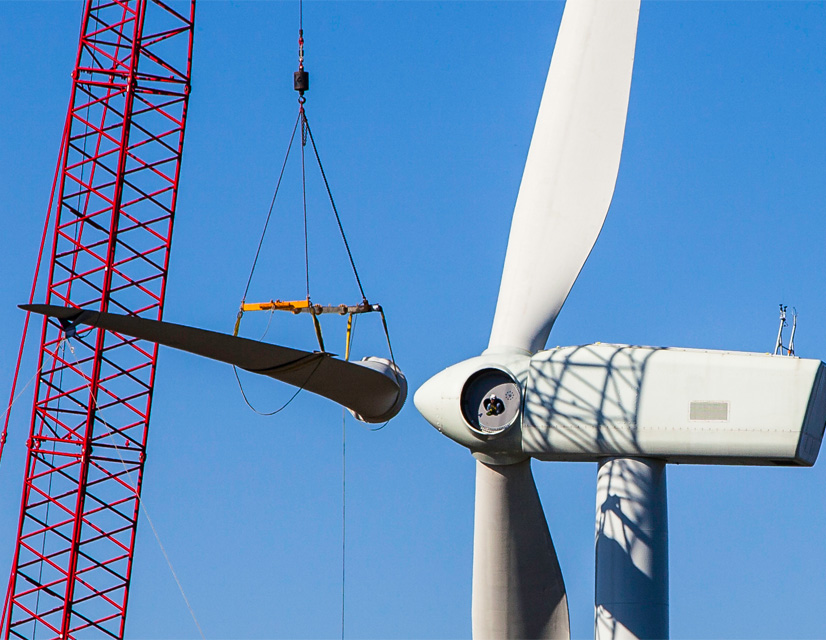
Avangrid’s (NYSE:AGR) declaration that the Commonwealth Wind project is no longer financially viable is potentially the latest delay in a long-running effort to site wind power off the coast of Massachusetts.
But advocates for offshore wind are optimistic it is likely only a temporary setback. The company itself signals its intention to continue with the project — but it wants to renegotiate its payments from the electric distribution companies (EDCs) that will buy the power.
Avangrid’s attorneys in an Oct. 20 filing asked the state Department of Public Utilities to suspend for one month its review of power purchase agreements for the 1.2-GW project in light of recent interest rate hikes, inflation and supply chain shortages.
“Commonwealth Wind’s purpose in pursuing this motion is to advance the project in an expeditious, transparent and ultimately successful manner, not to cause delay,” the company said. “Commonwealth Wind remains committed to working with the EDCs to keep the PPAs on track to obtain approval and to minimize the impact of any delays on that process.”
The move came after the three EDCs — Eversource Energy (NYSE:ES), National Grid (NYSE:NGG) and Unitil (NYSE:UTL) — and the state Attorney General’s Office asked the DPU to set remuneration for Commonwealth at 2.25% in accordance with a state law enacted in August. When the process began, remuneration was capped at 2.75%.
Avangrid CEO Pedro Azagra Blazquez told financial analysts during an Oct. 26 earnings call that despite all the challenges facing it, offshore wind remains the cheapest energy alternative in New England. Avangrid, he said, renegotiates many projects, and the changes it is seeking here are “modest and achievable.”
“We’re not suggesting we want to make more money. We’re just suggesting we need to find these projects back to the return we were expecting, and basically not to lose money,” he said.
Avangrid in September announced it was pushing the target completion date for Commonwealth to 2028 because inflation was running at 40-year highs. It said the extra year would allow it to take advantage of rapid advances in turbine technology and install units with 17 to 20 MW of capacity, rather than the 13-MW units that are today’s cutting-edge technology.
Meanwhile, Mayflower Wind Energy on Oct. 27 submitted a motion similar to Commonwealth’s, asking the DPU to suspend review of its PPAs with the same three EDCs for 30 days, or perhaps longer, to consider whether its own offshore wind project is economical and financeable under the current terms.
Possibilities to explore would include cost-savings measures, tax incentives under the Inflation Reduction Act and higher payments by the EDCs, Mayflower’s attorneys wrote.
In a separate motion, Mayflower also supported Commonwealth’s request for a one-month delay.
Offshore wind is an important part of the decarbonization strategy in Massachusetts.
Danielle Burney, deputy communications director of the Massachusetts Executive Office of Energy and Environmental Affairs, told RTO Insider on Tuesday that state leaders are monitoring developments.
“The Baker-Polito administration remains focused on increasing clean, affordable energy options and is prioritizing finalizing the latest offshore wind procurement to meet [Massachusetts’] climate goals and the statutory requirement to procure 5,600 MW of offshore wind by 2027,” she said via email.
“Avangrid’s Commonwealth Wind project, once completed, will serve as a critical component of these efforts and will greatly assist the state in achieving net zero in 2050. The administration is closely monitoring the recent efforts by Avangrid to explore altering the power purchase agreements that were previously executed with the electric distribution companies for the project.”
Amber Hewett, offshore wind energy program director for the National Wildlife Federation, said many factors are currently occuring at once, further complicating the already difficult process of creating a large and viable offshore wind industry in the U.S. and all the supporting infrastructure that it will need, which mostly does not exist.
“I’m staying hopeful that this is simply an unfortunate result of the global economy,” she said Wednesday.
Hewett, who has been advocating for offshore wind for nearly a decade, said proposals have been floating around Massachusetts for nearly two decades, so it is important to take a longer view and focus on the progress being made.
Avangrid is also 50% owner of the 800-MW Vineyard Wind I, which will be the first large-scale offshore wind project in the U.S. when it goes online next year, off Martha’s Vineyard. Hewett is cautiously optimistic that Avangrid wants to continue to move forward with the Commonwealth contract rather than scrapping and renegotiating it.
“So, this is hopefully a one-month setback, which is not much,” she said.
Tuesday was the deadline to submit comments on the matter to the DPU.
Avangrid Senior Vice President Saygin Oytan said in a filing that the estimated capital and debt costs of Commonwealth have increased by hundreds of millions of dollars and the project now has negative value. A modest increase in the PPAs, he wrote, would allow the project to obtain financing, still lower ratepayer bills and still have the second-lowest per-megawatt hour contract price among offshore wind projects that have been procured in the U.S.
If the project had to be put to competitive re-solicitation today, he said, the PPAs obtained would almost certainly be significantly higher than even the “modest increase” that Avangrid believes is needed. He added that he believes many other offshore wind projects nationwide are facing the same financial pressures.
The Attorney General’s Office submitted a two-sentence letter Tuesday restating its earlier brief, which called for the PPA remuneration cap to be cut from 2.75% to 2.25%.
The three EDCs filed a two-paragraph letter Tuesday saying there was no need for a one-month pause to renegotiate the PPAs because they have no intention of renegotiating.



